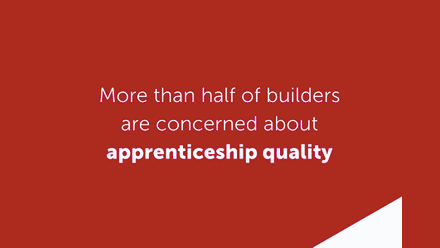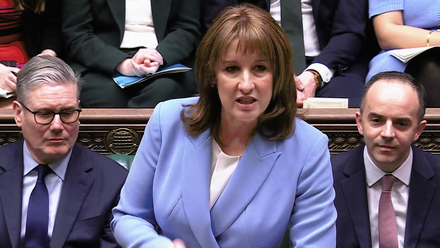Each year, the Chancellor of the Exchequer makes the Budget statement to the House of Commons, outlining the state of the economy and the Government’s spending and tax plans.
The FMB called for him to make it a Budget for Builders. Did he deliver? Well, in part.
The good news
The latest data indicates that the economy may recover from the impacts of the coronavirus by the middle of 2022; sooner than we thought. Unemployment will now peak at 6.5%, lower than the 11.9% predicted in July last year. A healthier economy should be good news for Master Builder companies.
Covid support extended
However, against the backdrop of ongoing lockdowns, supply chain issues for local builders, and limits on builders in Scotland working inside people’s homes, the Chancellor extended important business supports including the furlough and Self-Employment Income Support Schemes. A new Recovery Loan Scheme will replace the Bounce Back and Coronavirus Business Interruption Loan Schemes.
Help for house builders
Following lobbying from the FMB, the Chancellor extended the Stamp Duty holiday to the end of June 2021. There will be no duty payable up to a value of £500,000 for property sales in England and Northern Ireland. The zero rate will then stand at £250,000 until 1 October 2021, when it returns the normal level of £125,000.
To breathe further life into the housing market, new Government guarantees for lenders offering 95% mortgages were announced. This responds to concerns raised by Master Builders about lenders’ caution and the recent disappearance of higher loan-to-value mortgages.
Skills boost
The Chancellor also listened to the FMB’s calls for apprenticeship incentive payments to be extended. Now any employer training a new apprentice will receive a £3,000 upfront grant. SME builders already train 71% of apprentices in construction. Your role in tackling the construction skills shortage, by training apprentices in the trades will become more important than ever.
Get paid to invest
A new two-year policy called the ‘Super-deduction’ may be of interest to Master Builder companies. It will see businesses that invest in new equipment able to offset the total cost against tax, plus an additional 30%. Fuel duty was frozen, which will make it cheaper to run your fleet. Plans to raise the corporation tax rate from 19% to 25% will kick in in 2023, but only on profits over £250,000. A new Small Profits Rate of 19% will apply to profits of £50,000 or less.
What about retrofit?
While measures to mobilise green growth were announced, the FMB believes that the Government fell short of what was needed to tackle climate change effectively and stimulate the low carbon economy and grow the market for Master Builders.
A new UK Investment Bank will help to unlock investment in large infrastructure projects like offshore wind, and research and development into the use of hydrogen in producing energy.
However, the Budget missed the opportunity to back a clear long-term plan to make our homes greener, healthier, and more affordable to run. There are 28million homes in the UK that need work done on them to tackle their impact on the climate. This is a huge challenge, and a huge business opportunity for Master Builder companies, who are ideally placed to carry out this work.
What we need is Government backing for a National Retrofit Strategy that will give Master Builders confidence to take the plunge and invest in their businesses and upskill their workforce. When we asked members to identify the biggest barrier to more retrofitting, they said ‘a lack of a clear pipeline of work’. A Government and industry-backed strategy is the answer. We will keep up the pressure on Government in the run up to the international climate change conference the UK is hosting in November.
Read more about our work on retrofit in our campaigns section.






